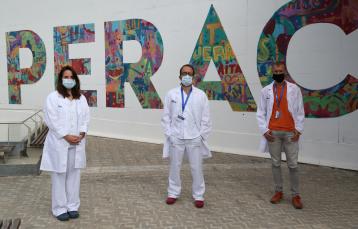Vall d'Hebron releases four innovative works on different systemic diseases
Comparteix aquest contingut
Related professionals
Dr. Luis
Coronel Tarancón
Coronel Tarancón
Dr. Luis
Coronel Tarancón
Coronel Tarancón
Dr. Manuel
Hernández González
Hernández González
Dr. Manuel
Hernández González
Hernández González
Researcher
Sra. Ana Elena
Ruiz Alcaraz
Ruiz Alcaraz
Sra. Ana Elena
Ruiz Alcaraz
Ruiz Alcaraz
Dra. María Teresa
Sanz Martinez
Sanz Martinez
Dra. María Teresa
Sanz Martinez
Sanz Martinez
Dra. Mónica
Martínez Gallo
Martínez Gallo
Dra. Mónica
Martínez Gallo
Martínez Gallo
Dra. Clara
Franco Jarava
Franco Jarava
Dra. Clara
Franco Jarava
Franco Jarava
Dra. Romina
Dieli Crimi
Dieli Crimi
Dra. Romina
Dieli Crimi
Dieli Crimi
Dr. Vicent
Fonollosa Pla
Fonollosa Pla
Dr. Josep
Pardos
Pardos
Dr. Josep
Pardos
Pardos
Systemic Diseases
Dr. Alfredo
Guillén del Castillo
Guillén del Castillo
Dr. Alfredo
Guillén del Castillo
Guillén del Castillo
Management Assistant
Dra. Cristina
Soler Lladó
Soler Lladó
Dra. Laura
Viñas Giménez
Viñas Giménez
Dra. Laura
Viñas Giménez
Viñas Giménez
Sra. Adelaida
Parada Ramos
Parada Ramos
Sra. Adelaida
Parada Ramos
Parada Ramos
See more













